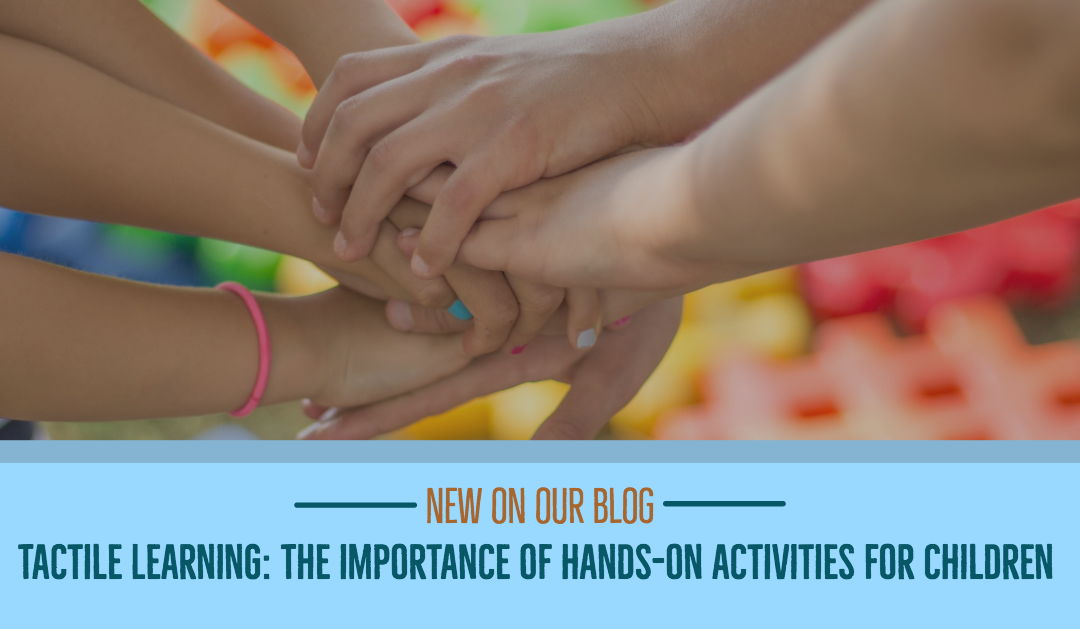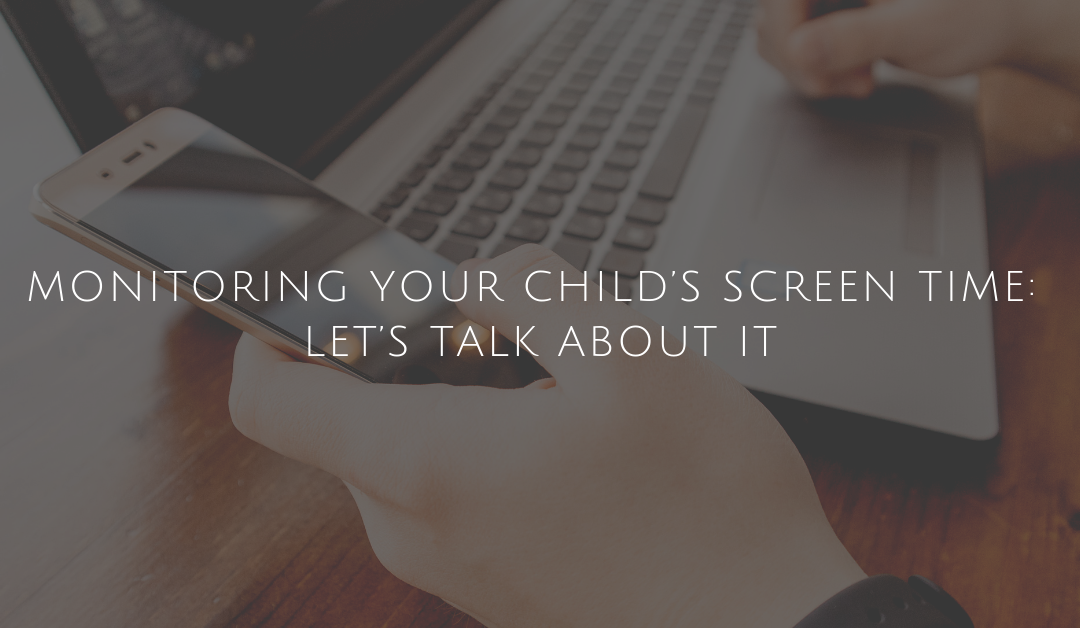
by Sara Hart | Jun 24, 2019 | Blog
Did you know that the first three years of a child’s life are the most impressionable? From ages zero to three, children begin to develop their own personalities and socialization skills and conquer some of the most important physiological milestones. These skills expand throughout childhood, which is why it’s important to leverage a system of teaching that aids learning through the senses, particularly through the sense of touch. Below, we explain the importance of tactile learning in helping promote strong, positive mental wellness in your child.
Helps children with learning disabilities
Since cognitive learning and physical activity are parallel and essentially reinforce one another, tactile learning methods can help improve a child’s concentration and learning capacity and increase self-confidence. A play-based learning technique allows children who struggle to maintain focus and learn in a traditional setting to succeed. This type of learning allows children to become engaged through intentional play tactics that help build the foundation for future education.
Promotes positive growth
Consistent, positive interactions with adults and other children their age allow a child to develop a positive, more relevant perception of the world around them. With instructors and parents engaging in play, whole parts of the child’s brain …

by Sara Hart | Mar 13, 2019 | Blog
Last month, a story in the media about a social media challenge directed at children and young adults, called the “Momo Challenge,” created unease in parents throughout the country. The challenge turned out to be a social media hoax and no reports of children participating in the challenge actually surfaced – but they were still aware of it and were discussing it among friends.
Several questions and concerns in parents arose from this internet scare. Do I have a firm understanding of what my child is actually viewing online? How do I successfully and healthily monitor my child’s social media and internet usage? Below, we offer a few tips on how parents can become more in touch with and supervise their child’s digital footprint.
Establish open lines of communication
It’s important to sit down with children to explain what’s out there and the harmful impact some online content can have on them. Don’t be afraid to have these hard conversations. Children experience fewer damaging effects when they’ve been taught basic media literacy skills.
Make technology use a privilege
Make it known that your children have to earn their screen time. This may be difficult for them to understand, but stay …

by Sara Hart | Feb 18, 2019 | Blog
Every teenager is going to experience pressure at some point in his life – pressure to achieve academically, pressure to fit in, pressure to establish a career path, etc. With the increasing demands put on teens today, it’s essential for them to understand the importance of mental wellness. Developing self-confidence through mental wellness will make it easier on teens to resist peer pressure.
Mental health is just as important as physical health, and it’s crucial for teens to appreciate its role in wellness as they prepare to venture into the world on their own. Below, we offer a few tips on how to encourage your teen to prioritize mental health.
Teach coping skills
Learning how to deal with and conquer negative emotions takes time. Work with your child to establish healthy coping skills that will ease the stress of the daily struggles he faces. Coping techniques can be different for every teenager, so work together to find what works. The goal is to establish a habit that will help your child put his negative feelings into perspective, allowing him to seek a healthy solution.
Be open to having hard conversations
It’s no secret that talking with teenagers about controversial subjects …

by Sara Hart | Jan 21, 2019 | Blog
It’s no secret – sleep is an essential factor when it comes to your child’s overall health and development. While a few bad nights can be normal, children with persistent sleeping problems could lead to temperament, learning and social behavior issues. Below, we outline steps you can take to improve your child’s sleeping habits, ensuring they get the critical sleep they need to develop and function properly.
Bedtime bravery
For a lot of children, the looming thought of going to sleep can be anxiety-inducing. That’s why it’s important to help them face it with bravery. Try drowning out odd noises with a sound machine; illuminating the room with a night light; or re-labeling an air freshener bottle as “monster spray.” Stay consistent in helping them face their fear. If they wake up in the middle of the night, bring them back to their own bed – instead of resorting to letting them sleep in yours. In turn, celebrate your child’s good nights by using a rewards system such as a sticker chart.
Sleep environment control
Allow your child to take control of his or her bedtime routine by choosing which stuffed friend or blanket to bring to bed. Find an …

by Sara Hart | Aug 30, 2018 | Blog
Whether you’re a college freshman who’s independent for the first time or a college senior who’s tasked with landing a job upon graduation, students of all ages deal with a lot of change, which can often be stressful and scary.
It’s true that your college years can be some of the best years of your life. But, we won’t sugar coat it – life in college can definitely be hectic, demanding and intimidating for some. The good news is you’re not the only one feeling this way. Experiencing anxiety over major life changes is normal. Some levels of stress can actually be a good thing, as the right kind of stress can lead us toward positive change and growth. However, stress and anxiety become a problem and a health risk for students when they exist for an extended period of time and seem impossible to control.
Whether it’s social or academic pressures, it’s important to seek resolutions from healthy outlets instead of harmful ones – such as drugs and alcohol. There are several resources available on campus to help you cope with and manage student stress. If you feel you need further guidance and support, these resources can connect you …





